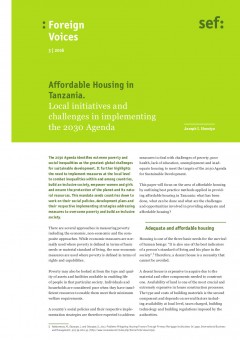
By Joseph I. Shewiyo
The 2030 Agenda identifies extreme poverty and social inequalities as the greatest global challenges for sustainable development. It further highlights the need to implement measures at the local level to combat inequalities within and among countries, build an inclusive society, empower women and girls and ensure the protection of the planet and its natural resources. This mandate sends countries down to work on their social policies, development plans and their respective implementing strategies addressing measures to overcome poverty and build an inclusive society.
There are several approaches in measuring poverty including the economic, non-economic and the composite approaches. While economic measures are normally used where poverty is defined in terms of basic needs or material standard of living, the non-economic measures are used where poverty is defined in terms of rights and capabilities. Poverty may also be looked at from the type and quality of assets and facilities available in enabling life of people in that particular society. Individuals and households are considered poor when they have insufficient resources to enable them meet their minimum welfare requirements.
A country’s social policies and their respective implementation strategies are therefore expected to address measures to deal with challenges of poverty, poor health, lack of education, unemployment and inadequate housing to meet the targets of the 2030 Agenda for Sustainable Development. This paper will focus on the area of affordable housing by outlining best practice methods applied in providing affordable housing in Tanzania: what has been done, what can be done and what are the challenges and opportunities involved in providing adequate and affordable housing?
